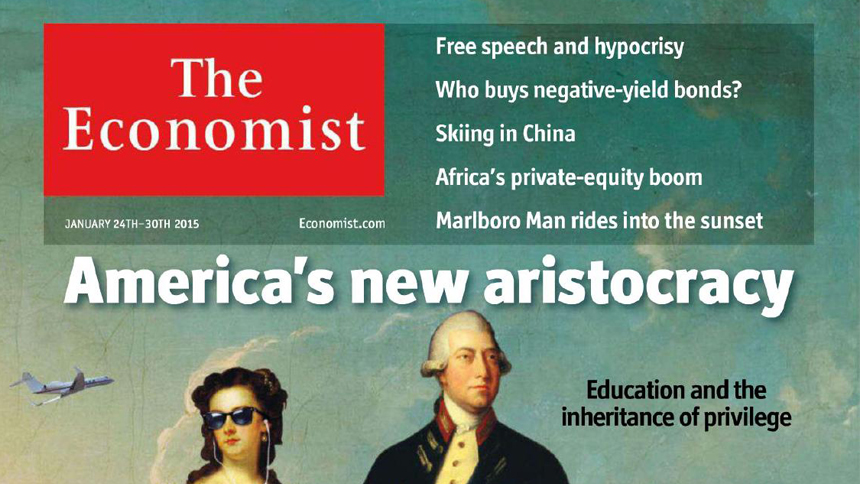The stereotype would have us believe magazine and Web editors sip black coffee while smirking at the rookie pitches that flood their inboxes.
Oh, and that their sense of style is far superior to that of us lowly writers (which isn’t difficult because we’re all wearing sweatpants stained with peanut butter and our own tears).
Also on Mediabistro


Although I am indeed wearing my jammies at the time of this writing, the stereotype about editors isn’t nearly as true. Editors, though busy, want their writers to succeed.
The relationship is symbiotic. Without writers, editors don’t have content and without content, publications would fall apart.
Start with a stellar pitch.
We all know a brilliant pitch is editorial gold. But what do editors really want out of a pitch letter?
Lisa Haney, a freelance writer and editor, says it’s all about tailoring your pitch to three things: the magazine, the audience and the section that she handles. “If you hit those three points, you’re already ahead of a lot of pitches.” Regarding the actual content of a pitch, she adds, “It needs a new hook or angle. It has to be an actual idea, not a subject.”
To determine whether your pitch has an angle, boil it down into a statement. For example, “Breastfeeding decreases a child’s susceptibility to obesity” or “Soy milk is good for bone health.” If you can’t do this exercise or you wind up only with topics like “breastfeeding” or “bone health,” you’re unlikely to catch an editor’s eye.
As an editor, she loves when writers come up with a catchy headline, and add an outline or subheads within the body of the email. “I’d put the headline in [the subject field] or ‘story pitch.’ I get so much information from PR representatives. Knowing that it’s an article pitch, and not a product or a book, is really important.”
“I like specifics. Help me picture the final piece,” says Elena Mauer, an editor and content strategist.
Make your editor’s job easier.
The best freelancers are the ones who are easy to work with: They’re timely, courteous and professional. These attributes may be obvious, but others are less apparent, especially to new writers.
Chandra Turner, executive editor of Parents magazine, says that nothing drives an editor crazier than reading a wonderful piece and having it fall apart in fact checking. Writers, she says, “should source all their content. Have your backup for everything that you’ve written.”
Mauer emphasizes the importance of fact checking, too. “Make sure you talk to an expert, or you’ve looked up a study or you have some sort of a credible resource that says this is true. Back up all the information and turn in all your fact-checked materials in an organized way so our research team can look it up easily.”
Another component is communication. Just like in any working or personal relationship, communication can make or break it. Mauer says, “If you can’t make a deadline, just check in. If you can’t get a hold of your expert, just keep me posted. It happens, and we can work around it as long as we know to expect that.”
She adds that new freelancers tend not to ask many questions when writing up a first draft. They often try to handle conflicts that come up in the writing process alone. “Don’t just write it up and turn it in,” Mauer says. “Ask me! Because that’s what I’m here for, and shaping it before the first draft really turns out to be a better end result.”
Be both a great writer and reporter.
Turner emphasizes, “The best freelancers are the ones who are really strong journalists and also really excellent wordsmiths. If you have that combination, you’ll be very salable in this market—and forever.”
Identify your strengths and weaknesses. Are you quick-witted on the page, but you choke in interviews? Do you have a knack for digging up unique stories, yet you get lost when it’s time to put fingers to keyboard? Honing your reporting or writing skills may give you the edge you need to woo an editor and land your dream assignment.
If you’re uncertain which skill to attack, however, editors are often more likely to be won over by a killer story idea than artful prose. Haney says, “I’m looking for some good balance, somebody who knows how to dig and get good quotes from experts, and to be able to synthesize information into a straightforward voice.”
It requires little effort for editors to finesse your work—after all, “edit” is in their job title. On the other hand, scoping out a hot story about a miracle weight-loss supplement or an underground fitness trend that’s sweeping the nation? Not so quick and easy to do.
Breaking in? Think in terms of the editor’s risk.
You may be ready to deliver some amazing content, but when you’re pitching a publication for the first time, the editor doesn’t know a thing about you. Even a beautifully crafted pitch tailored exactly to your target publication may get lost or declined because an editor doesn’t want to risk a 2,000-word feature on a stranger.
If you’re trying to make your print debut, Turner suggests starting small. “It’s less of a risk for me to assign a 300-word or 1,000-word [story] than a major feature. If it comes in and it’s not good, it’s a bigger risk for me. Pitch smaller stories and work your way up. Breaking in as an essay is a really great way to do it—I can’t assign an essay; it’s your story.”
Haney suggests another way to step into an editor’s shoes: By examining which “buckets” he or she has to fill. “Most magazines are very highly formatted, so if you check out the section an editor handles, you’ll see what types of stories fill those sections,” she says. The challenge of her daily grind, she explains, is “What’s my opener? I need a health report. [I’m] trying to fill those buckets constantly. So when your pitch comes in, it helps me mentally fill those buckets and puts you at the top of the list.”
What editors want you to know.
Mauer says she wishes writers knew that she just can’t always respond to pitches the day she receives them—even though she wishes she could. Her day is often jam-packed with approving new stories, running to meetings, reading layouts and meeting deadlines. “I want freelancers to know it’s OK to remind me of your pitch. If you have this idea and it’s timely, it’s okay to put that in the subject line. There are lots of great ideas that come our way that we really wish we could accept, but we just can’t. At different times we’re prioritizing different types of content.”
Turner advises, “Be open to being edited. Most professional [writers] are fine with that; it’s the newbies that fight over every adjective.” However, writers should still feel free to provide their input because it is ultimately their byline that will appear on the piece. “It really is a dance to get to the right place,” Turner says.
Haney wants writers to know how much of a risk it is to take on a new freelancer. “But once you break through, you’ll get more work. A lot of writers we work with don’t pitch all the time; they’re the ones we go to with ideas. So the good news is you pitch less if you have a good relationship with an editor.”
Topics:
Journalism Advice










